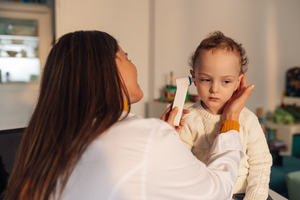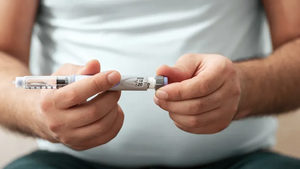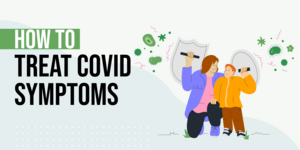Key points
- Dehydration occurs when the body loses more fluids than it takes in, often due to heat, illness, or certain medications.
- Mild to moderate dehydration can be treated at home with water, sports drinks, milk, fruits, vegetables, and oral rehydration solutions.
- Severe dehydration, especially in children and older adults, can lead to serious health issues and requires medical attention.
- Staying hydrated is crucial for body temperature regulation, organ protection, nutrient transportation, and waste removal.
- To stay hydrated, it's recommended to consume around 12 cups of fluid for men and 9 cups for women daily, with increased intake during exercise, hot weather, or when consuming caffeine or alcohol.

Dehydration is a common issue during the hottest months of the year, as well as in tropical climates, and if you are sick with a gastrointestinal illness.
Dehydration occurs when your body loses more fluid and electrolytes than it should, according to the American Academy of Family Physicians (AAFP). They also note that the best way to rehydrate quickly is to treat the condition that is causing it (such as moving out of the heat or treating diarrhea). Below you’ll find 5 ways you can treat dehydration at home and when to see a doctor.
What causes dehydration?
Dehydration occurs when the body loses more fluid than is being taken in, according to the National Library of Medicine (NLM). This can happen for several reasons, including:
- Vomiting and diarrhea caused by an illness (virus, parasite, or bacteria) or food poisoning
- Excessive sweating from exercising or overheating
- A prolonged fever
- A sore throat
- Frequent urination
- Burn injuries (including severe sunburns)
- Being in hot or humid weather for a long time
- Certain drugs like diuretics
For most people, mild and moderate dehydration can be resolved by replenishing fluids (drinking). However, for older adults and young children dehydration can be a serious condition, according to the NLM. They note that severe dehydration can lead to heat illnesses (like heat stroke or heat exhaustion), urinary or kidney problems, and seizures.
How Do You Treat Dehydration at Home?
1. Water
Water is the best way to rehydrate if you’re trying to prevent or treat dehydration, according to the CDC. They note that water provides adequate rehydration in most cases, but if you are in a hot environment or doing an intense activity (like a high-endurance sport or exercise) you may want to rehydrate with something that can help replenish your sodium levels (like a sports drink).
If you are not fond of plain water, coconut water is also a good option for rehydration.
2. Sports Drinks
Some sports drinks contain water, electrolytes, and other ingredients that can help rehydrate the body, according to the CDC. These sports drinks are the best option when you are sweating a lot (because sweating can deplete your body of necessary sodium quickly). The CDC recommends opting for a sports drink if you’re in hot weather or doing high-intensity exercise.
3. Skin or Low-Fat Milk
Milk can help rehydrate the body as well as provide some protein and other nutrients, according to the CDC. They note that some research explains that skimmed or low-fat milk can be as effective as sports drinks after exercise. Some research also supports milk as a good choice for kick-starting the muscle repair process if you are weight lifting, according to the CDC. If you can tolerate milk products, it may be a good choice for you.
4. Fruits Vegetables
Fruits and vegetables are great hydrating snack options, according to the CDC. This is because many fruits and vegetables contain 80 to 99% water, among other nutrients. The CDC notes the following as great choices:
- Berries
- Melons
- Oranges
- Grapes
- Carrots
- Lettuce
- Cabbage
- Spinach
5. Oral Rehydration Solutions
Oral rehydration solutions are water-based solutions that also contain electrolytes and sugar, according to the CDC. Some even contain prebiotics and zinc, they note. While this is usually a more expensive option than sports drinks, some people prefer them. You can find liquid or frozen liquid forms of these solutions at health food stores or retail pharmacies.
Signs and Symptoms of Dehydration
According to the AAFP, the symptoms of dehydration are different for adults and children. They list the following symptoms to look out for:
Dehydration in an Infant or young child
- Dry mouth and tongue
- No tears when crying
- No wet diapers for three hours
- Sunken eyes, cheeks
- Sunken soft spot on top of the skull
- Listlessness or irritability
Dehydration in an Adult
- Extreme thirst
- Less frequent urination
- Dark-colored urine
- Fatigue
- Dizziness
- Confusion
When to See a Doctor for Dehydration
Severe dehydration may require IV fluids to help rehydrate you, according to the AAFP. They recommend that you see a doctor if you or your child has any of the following symptoms of severe dehydration:
- Can’t keep down fluids
- Has bloody or black stools
- Seems irritable (“cranky”), disoriented, or sleepier than usual
- Has had diarrhea for more than 24 hours that isn’t getting better
Children and older adults are most susceptible to dehydration, so it is important to see a doctor if you have any concerns. You can find a pediatric urgent care near you by searching Solv.
Why is Hydration so Important?
Staying well-hydrated is important for several reasons, according to the NLM. Some of the most important reasons include the following:
- Regulation of body temperature
- Moistening of the tissues in the eyes, nose, and mouth
- Protection of body organs and tissues
- Carrying nutrients and oxygen to cells
- Lubricating joints
- Lessening the burden on the kidneys and liver by flushing out waste products
- Dissolving minerals and nutrients to make them accessible to your body
How Much Water Do You Need?
Every day, you lose 8 to 12 cups of water through breathing, perspiring, and your urine and bowel movements, according to the AAFP. They note that in general, men need around 12 cups of fluid every day, while women need around 9 cups. Some factors increase your fluid needs, they explain. Some of these factors include:
- Exercise
- Being in hot weather
- Being at a high altitude
- Eating a high-fiber diet
- Drinking caffeine and alcohol
The NLM explains that while you may get some water intake from your diet (mainly fruits and vegetables), it is hard to track your fluid intake from food, so it's best to drink at least eight cups of fluid (like water) every day.
Tips for Staying Hydrated
If you find it difficult to get eight cups of fluid in every day, the NLM and CDC offer these tips:
- Start your morning by drinking a glass of water as soon as you wake up
- Carry a water bottle with you wherever you go
- Set water-drinking goals for yourself (you can even get a tracking app for your phone that helps you meet your water-drinking goals)
- Cut out sugary beverages to avoid empty calories
- Try club soda, seltzer, coconut water, or sparkling water if you enjoy carbonated or flavored drinks
- Try adding a slice of lemon, lime, or other fruits to infuse flavor into your water
If you're dehydrated and need to see a doctor, use Solv to find and book an appointment with the nearest urgent care clinic.
FAQs
What causes dehydration?
Dehydration can be caused by several factors including vomiting, diarrhea, excessive sweating, fever, frequent urination, and certain drugs.
How can I treat dehydration at home?
Mild to moderate dehydration can be treated by drinking fluids like water, sports drinks, milk, and oral rehydration solutions. Eating fruits and vegetables that have high water content can also help.
What are the symptoms of severe dehydration?
Symptoms of severe dehydration include inability to keep down fluids, bloody or black stools, irritability, disorientation, and prolonged diarrhea.
When should I see a doctor for dehydration?
You should see a doctor if you or your child shows symptoms of severe dehydration or if the condition does not improve after 24 hours.
How much water do I need to stay hydrated?
On average, men need around 12 cups of fluid every day, while women need around 9 cups. Factors like exercise, hot weather, high altitude, and a high-fiber diet can increase your fluid needs.









